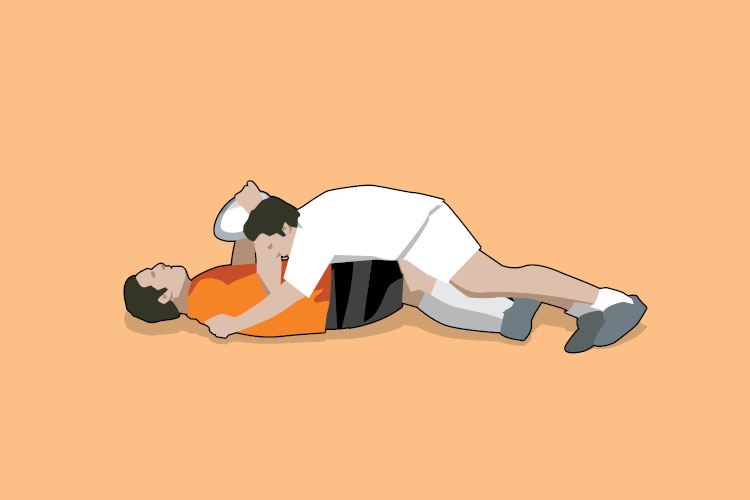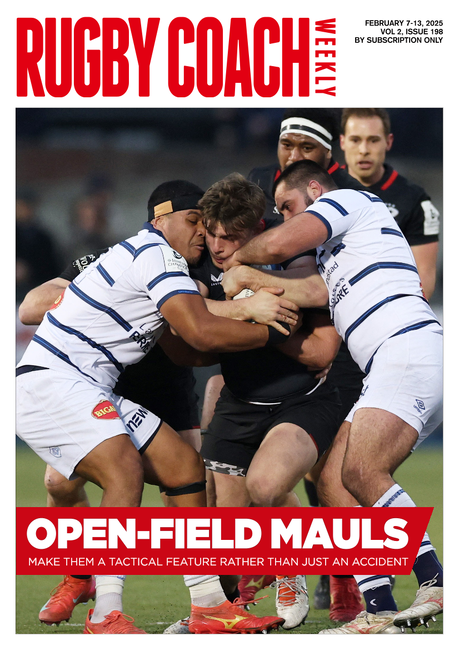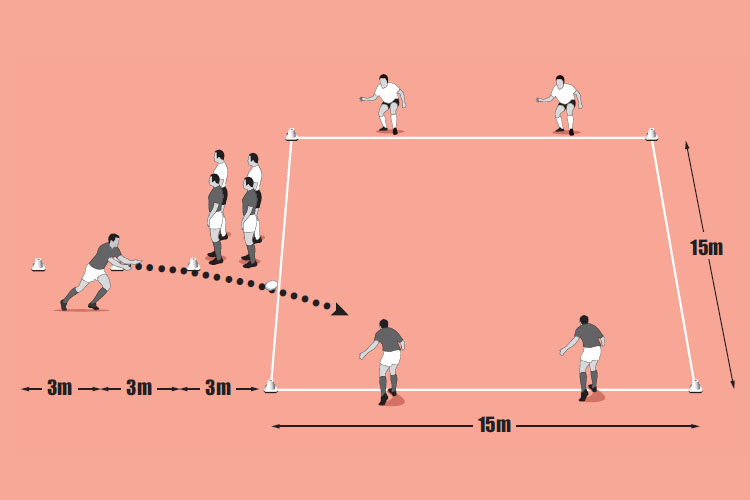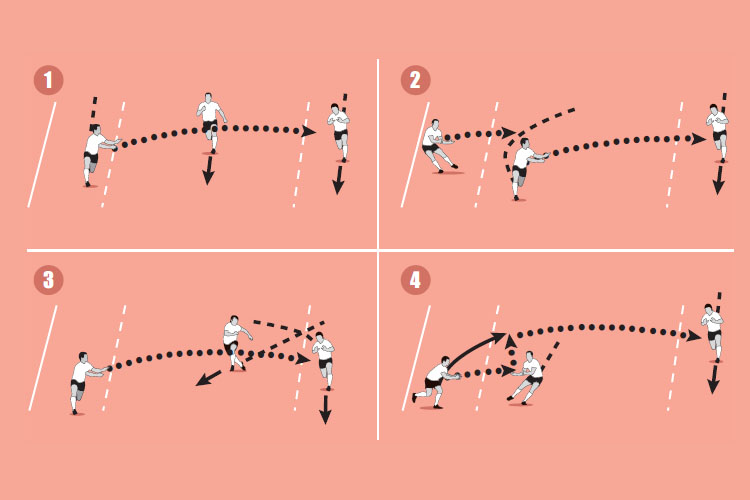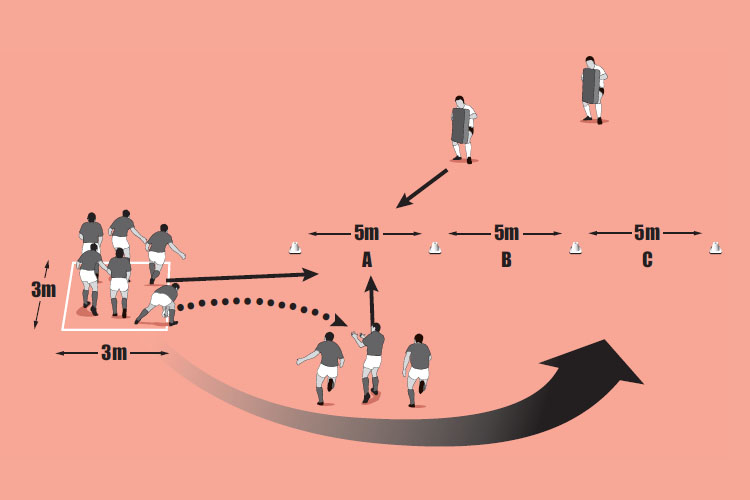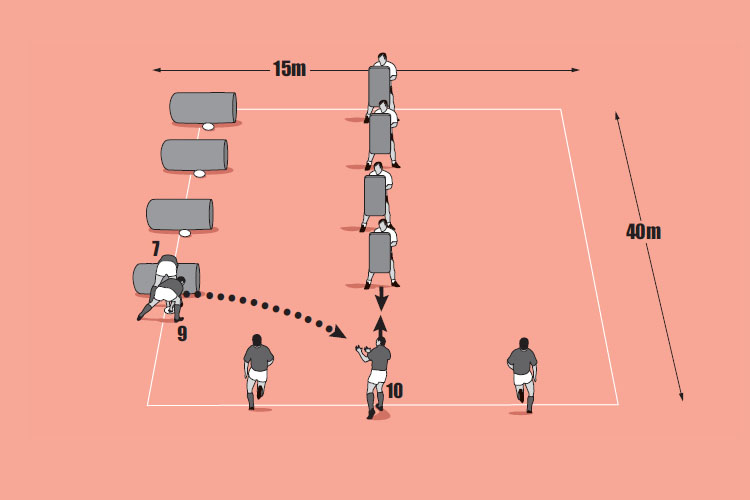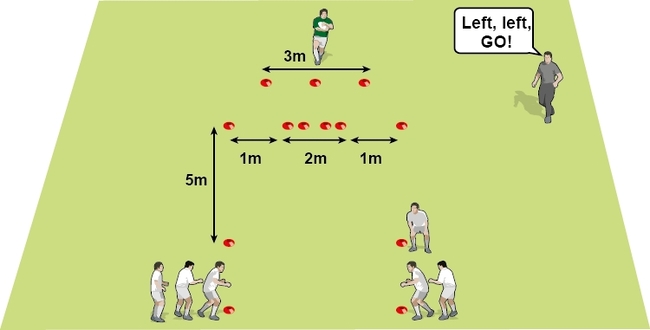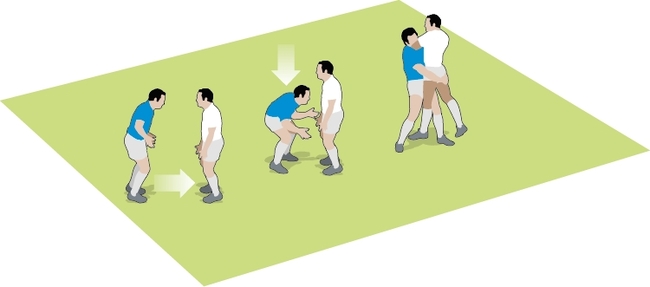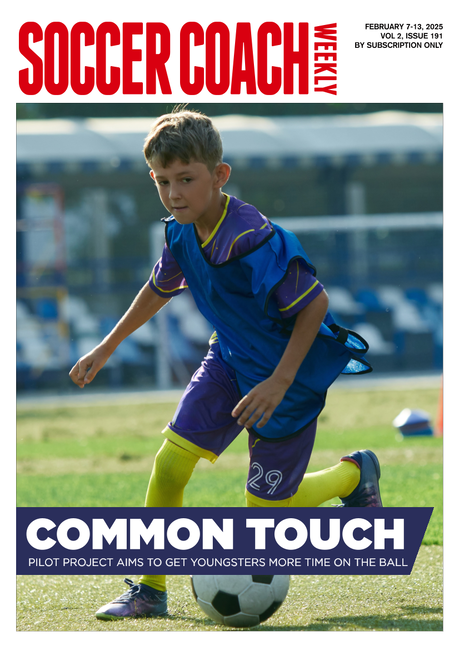Front up tackling
An organised defensive system requires players to make front on tackles. This often means the defender has to adjust his position to make sure he is in a strong body shape to make the tackle. This session works on developing the required techniques through to a game situation.
Warm up time: 5-7
Session time: 5-8
Development time: 10-15
Game time: 15-20
Warm down time: 5-7
What to think about
- “My players make a lot of weak scrag tackles in games where they are grabbing at opponents’ shirts. Why is this and how can we improve our tackling?”The main reason for players making weak scrag tackles is that they have to reach to make the tackle. This results in them making weak arm tackles instead of strong shoulder tackles.It is usually caused by a lack of footwork from the tackler so instead of being in front of the ball carrier he is off to the side. Use mirroring exercises and games with your players where one player follows another face-to-face. This will improve their footwork and understanding of where they need to be to make a strong tackle.
set-up
- Always get your body in front of the ball carrier.
- Stay on your feet and drive your legs through the tackle.
- Aim to land on top of the ball carrier so you can get up quicker.
What you get your players to do
The ball carrier moves from left to right trying to get away from the defender. The defender has to aim to stay opposite him. When the ball carrier thinks he is free he moves forward in a straight line to score. The defender has to get in front of him and make a two-handed touch on his chest. If the defender finds it difficult to start with, decrease the width of the channel.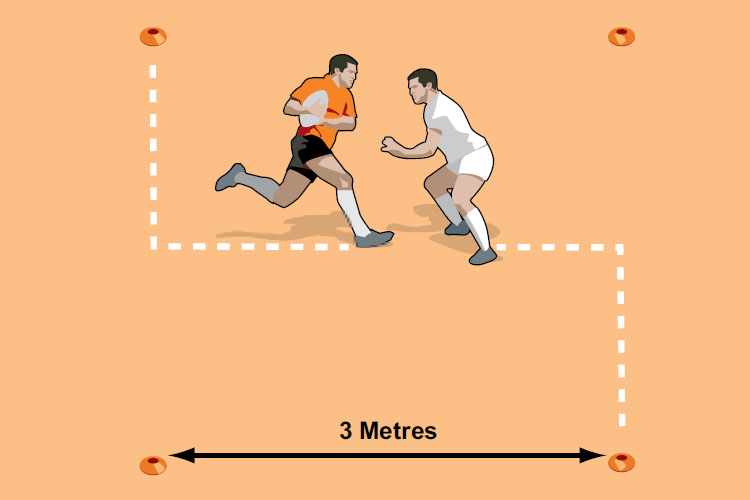
Development
- Change from a two-handed touch to a shoulder hit where the defender has to stop the ball carrier but not knock them over. Ensure the players maintain good, safe technique throughout.
- Progress to a full tackle. Allow the tackler to compete the tackle by ending up on top of the ball carrier and stealing the ball.
Related Files
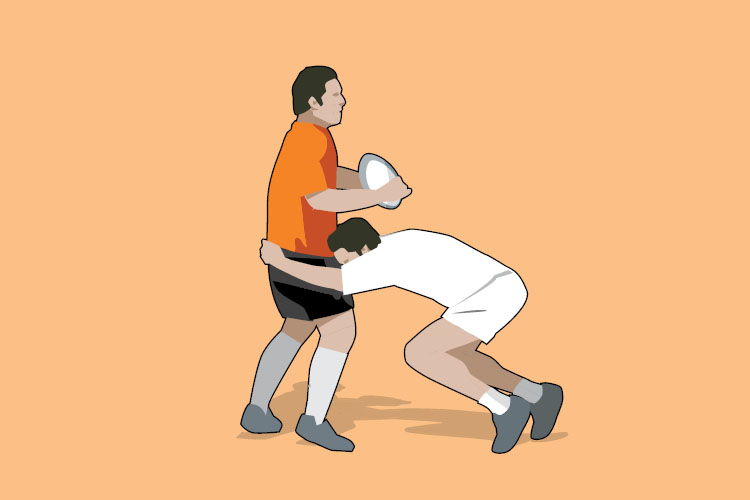
Game situation
Play a four or five a side game of full contact rugby. When a defender makes a side on tackle the attacking team keep the ball. If they make a front on tackle possession is turned over and the game continues. The attacking team have to make it as difficult as possible for the defenders to make front on tackles.What to call out
- “Head up and look at your target”
- “Stay balanced – keep your feet underneath you”
- “Hit with the shoulder, stay on your feet and drive straight through the ball carrier”
Newsletter Sign Up
Coaches Testimonials

Gerald Kearney, Downtown Las Vegas Soccer Club

Paul Butler, Florida, USA

Rick Shields, Springboro, USA

Tony Green, Pierrefonds Titans, Quebec, Canada
Subscribe Today
Be a more effective, more successful rugby coach
In a recent survey 89% of subscribers said Rugby Coach Weekly makes them more confident, 91% said Rugby Coach Weekly makes them a more effective coach and 93% said Rugby Coach Weekly makes them more inspired.
Get Weekly Inspiration
All the latest techniques and approaches
Rugby Coach Weekly offers proven and easy to use rugby drills, coaching sessions, practice plans, small-sided games, warm-ups, training tips and advice.
We've been at the cutting edge of rugby coaching since we launched in 2005, creating resources for the grassroots youth coach, following best practice from around the world and insights from the professional game.
